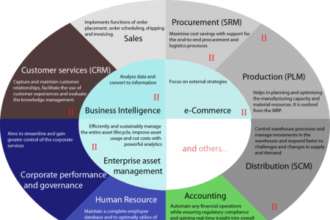“All knowledge is connected to all other knowledge. The fun is in making the connections.”
The remarkable gentleman who said this quote, Arthur Aufderheide M.D. (1922-2013), certainly lived by these wise words.
“All knowledge is connected to all other knowledge. The fun is in making the connections.”
The remarkable gentleman who said this quote, Arthur Aufderheide M.D. (1922-2013), certainly lived by these wise words.

Dr. Arthur Aufderheide (2008). Source: umn.edu
An energetic man with an innate curiosity of the world, Dr. Aufderheide was a medical school professor for the University of Minnesota who founded an entirely new area of scientific research: paleopathology – the study of the spread of diseases in ancient civilizations through the forensic analysis of mummies (or, in simple layman’s terms, think of it as CSI: Ancient Civilizations !)
Aufderheide pursued this unique research with gusto for three decades, traveling the globe locating and examining mummies, in the process defining best practices in the scientific examination of mummies taught and practiced around the world, while also aiding present-day understanding of the spread of diseases. His research would also rewrite history; for example, Christopher Columbus did not infect the native peoples of the New World with fatal diseases brought from the Old World as historians had long assumed; Aufderheide’s research revealed tuberculosis was prevalent in the Americas five centuries earlier.
Aufderheide’s innovative research revealed new insights by correlating new data drawn from new sources that had been waiting for centuries to be discovered. I believe anyone involved in business intelligence, big data analytics and enterprise information management can easily appreciate this.
Just as important: Dr. Aufderheide was the perfect person to make those new correlations. You see, Aufderheide came up with the idea for his unique research by combining his decades-long knowledge of disease with his many personal interests in archaeology, anthropology, outdoorsmanship, world travel and native cultures – the perfect correlation of his passions, interests and expertise. His research was so successful, inspirational to his students and earned the recognition from the global scientific community because he absolutely loved doing it – right up until he finally retired at the age of 86.
Of course, Dr. Aufderheide made a living doing this work, but he could have also “made a living” (as in “work for the money”) by remaining in his original career as a hospital pathologist, a job he no longer found fulfilling. Instead, at the age of 55, he wisely made a career change into academia. Had he opted to just “tough it out” in his old job, counting the days to early retirement, it’s safe to say his remaining life work would have been unremarkable at best. By the same token, a different university professor who found his work just as unrewarding most likely would have accomplished very little in the way of new meaningful research, even if he was given Aufderheide’s idea!
I see two key business takeaways from the story of Dr. Aufderheide and his successful life work.
First: Organizations that have an authentic culture of genuine passion for its mission will inevitably outperform competitors that don’t, even if those competitors are bigger with much deeper pockets.

Source: iStock
This is true for a couple of key reasons; for one, passionate companies will only hire people who will share their passion. At a recent open discussion event at General Assembly Boston, start-up founder and CEO John McEleney emphasized the critical need for start-ups to hire with great care. You must “have the right people on the bus” and keep mediocre players out of the organization, by requiring any new potential hire to be sponsored/referred by an existing employee. Product Management executive Gopal Shenoy agreed, adding that former SolidWorks CEO John Hirshtick often said that “hiring is the most important thing you do in your company” – and expected managers to cancel any scheduled meetings if they were asked to interview a job candidate.
Also, while just about every organization wants to claim they fall into the ‘passionate’ category, many end up paying mere lip service to the concept. In contrast, the leaders of truly authentic passionate organizations empower managers and workers to passionately – and freely – pursue the company’s mission to the fullest without the drag of company politics, turf wars or internal arguments. Otherwise, an organization will end up with a lot of people just working for the money.
Second: Organizations with genuine passion for its mission have a substantial innate advantage when developing and/or utilizing BI technology. They will uncover more/better/faster new data correlations revealing new business answers drawn from new big data, information management, data analytics and other technologies. This is because they will relentlessly ask more new, piercing questions about their business.
You can’t make tough decisions without answering tough questions. Avoiding the questions chokes change. #Leadership
—
Wisdomalive (@wisdomalive) April 20, 2014
And because they are free from the palace politics as mentioned above, those questions are not only asked freely, but also actively encouraged by leadership without judgment or blame:
When it comes to decision making, ask “What is right?” rather than “Who is right?” bit.ly/1iF0kLY #PeterDrucker @edcatmull
—
Drucker Institute (@DruckerInst) April 12, 2014
Finally, I encourage you to check out Simon Sinek’s viral TED presentation related to this topic if you haven’t seen it yet (or if you have, definitely well worth watching again!):
Well, that definitely describes the kind of organization I’d love to work for. How about you? 😉








